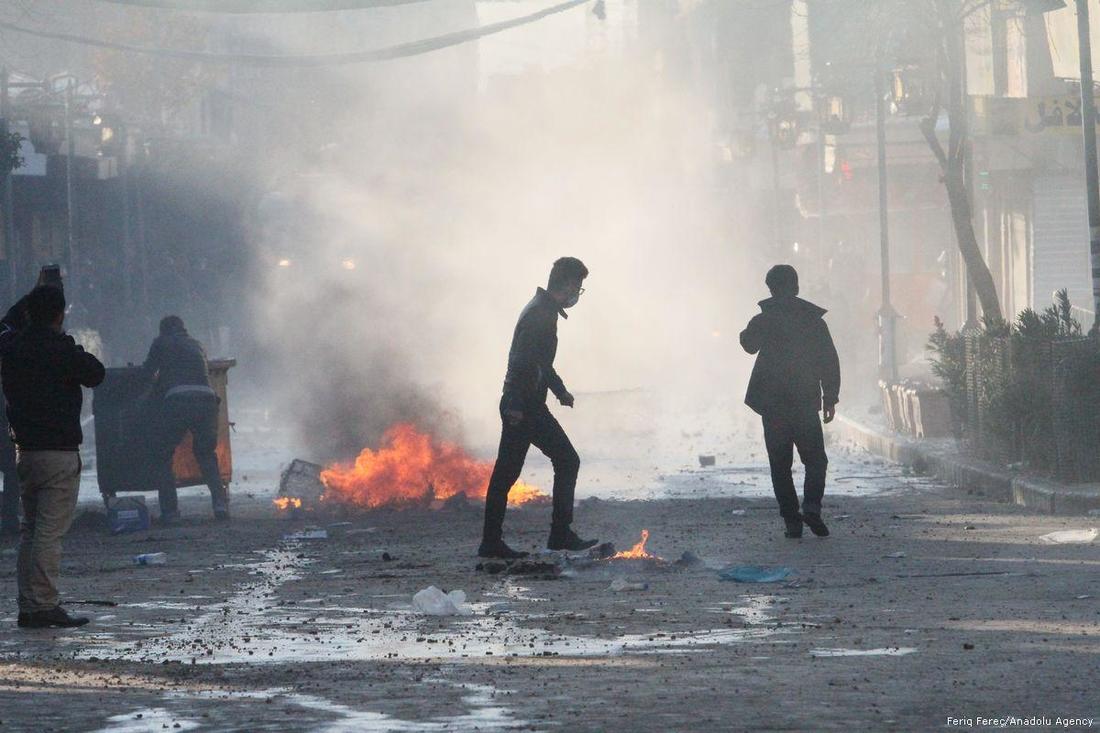The latest uprisings that began in Basra before boiling over into surrounding southern provinces in Dhi Qar, Muthanna, Karbala and Maysan, have been met with increasing violence and disdain from state forces, as the latest assassination shows. The frustrations produced by fifteen years of poor electricity services, recurrent power outages, rising poverty, bleak employment prospects, uncontrollable levels of water salinity, the outsourcing of the local oil and gas industry, and blatant corruption, have fuelled demands for a dignified life away from the depraved existence for which the incumbent elite is held responsible.
The myth of support continues to be parroted by the presiding caretaker government whose mandate expired last month, as well as by US officials protected inside the walls of the heavily fortified US Embassy complex situated in the heart of Baghdad. At a US State Department press briefing last Wednesday, deputy spokeswoman Heather Nauert iterated America’s support. When asked about the response seen from Iraqi officials, Nauert said unconvincingly that the state’s responsibility is to protect the rights of those it governs and to maintain the security of public and private property. “They [the government in Baghdad],” she added, “have expressed an intent to do more to address protesters’ grievances.” Little more than rhetoric has been presented at this stage, though, including pledges from neighbouring Kuwait to supply Iraq with 30, 000 cubic metres of diesel to boost the electricity sector.
Such claims are always accompanied by denouncements of protester violence or warnings of expected violence, after 19 buildings and government installations were stormed and torched by demonstrators. However, this rhetoric is rarely reciprocated in cases when Iraqi state actors and security personnel are responsible for the violence.
Hundreds of peaceful protesters have been apprehended by state forces, and many have been tortured by irregular militias, and denied legal counsel and representation. The one man who threw his full weight behind their cause, as the outpouring of condolences from local people testifies, was Jabbar Abdul Karim Bahadli, whose assassination has been interpreted on social media as another attempt to keep the lid on political freedoms. As many as 65 arrests were carried out in Nasiriyah City and Dhi Qar Province, an activist who cannot be named for security reasons told MEMO, and the shutters have been pulled down on internet freedoms after access was limited under orders from the Iraqi Prime Minister. “They need to crush dissent at all costs,” the 32-year-old added. “Their survival depends on it.”
Reports of the excessive and unnecessary use of force by riot police against unarmed protesters have attracted little attention. Those who have been following and corresponding diligently will know the weight of suppression that Iraqis are defying and circumventing in their own way. Transnationally-built activist networks have enabled news to reach the outside world, but coverage outside of the Iraqi Twittersphere is hard to come by.
As incidents of violence increase, Iraqis feel increasingly isolated from the outside world but have raised their concerns using hashtags such as #Save_the_Iraqi_people. The use of violence may help the state believe that it has the upper hand, but it offers no panacea for Iraq’s crippled public sector. The hollowing of state institutions, barely able to function, mirrors the status of Iraq’s sovereignty and the weaknesses of the presiding system. So long as it remains weakened and in question, the people will continue to defy the exceptional violence that the post-2003 invasion era represents.
Source: www.middleeastmonitor.com/20180724-iraqs-southern-rebellion-defies-defeat-in-the-face-of-state-violence/


 RSS Feed
RSS Feed